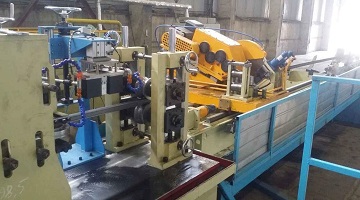The Eddy Current Testing for Titanium Tubes
The thin-wall titanium tube is ideal for power station heat exchangers, mainly classified as thickness of 0.5mm and 0.7mm. Both seamless and welded tubes shall be made to ASTM B338/ ASME SB-338. As titanium tubes may be subject to defects such as pores and cracks under working conditions, most clients require the nondestructive testing on the material. The eddy current testing is one of the most important tests.
Eddy current testing is under the designation ASTM E426. It is a nondestructive testing method for locating titanium tubes’ defects. The sensor can detect the change of electromagnetic response caused by the defect, amplified and transformed to drive the audio or video display device, or both, or mechanical marking device. Signals can be caused by outer surface, inner surface, or subsurface discontinuities. The eddy current testing equipment includes electronic apparatus, examination coils, probe coils and driving mechanism. In order to establish the reference standard to adjust the sensitivity setting of the testing apparatus, a artificial hole not larger than 0.031″ (0.787 mm) shall be drilled completely through the titanium tube wall, with care being taken to avoid distortion of the tube while drilling.

The eddy current testing equipment for titanium tubes
The examination can be conducted using two general techniques. One of the techniques uses one or more exciter and sensor coils to enclose the tubes which should be passed through it. Various defects in the titanium tube can affect the normal flow of the eddy current, and this change can be detected by the sensing coil, which can detect the entire 360 degree range of the tube. Another technique employs a probe coil with one or more exciters and sensors which is brought in close proximity of the surface of the tubular product to be examined. As the probe is generally small, it can detect only a limited area near the probe. The instrument shall be calibrated with reference standards at the beginning of the test. The recommended maximum interval between re-standardization is four hours.
